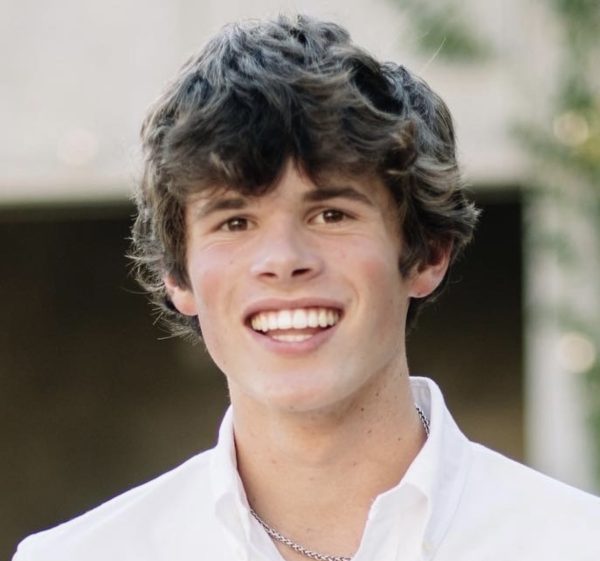On Nov. 5, Utah voters will see the results of this year’s gubernatorial election. The current frontrunners are incumbent Republican Gov. Spencer Cox and Democrat Rep. Brian King. The two candidates recently faced off in a debate, where Libertarian Robert Latham took to the stage as well.
While the two leading candidates promote similar policies, they argue for different approaches. Here’s a run-down of what each candidate has promoted over the course of their campaigns.
Incumbent Republican Gov. Spencer Cox
Cox’s campaign highlights his achievements from his first term and outlines his priorities for a potential second term. According to the governor’s website, Cox works to prioritize “educational excellence,” the economy, health improvements, protecting rural areas and “disagreeing better.”
During the debate, Cox pointed to his $200 million education proposal to demonstrate his support of the education system. The proposal included a $6,000 pay raise for teachers and funding for early education and infrastructure needs.
Cox is also focused on addressing the housing crisis. A recent bill package signed by Cox allocated millions for affordable housing and homeless services. During the debate, Cox discussed a plan to build 35,000 starter homes over the next five years.
“We have a plan, we have legislation,” Cox said.
Economically, Cox claimed to have ushered Utah into a “golden age” during the gubernatorial debate. He pointed to major tax cuts, the previously mentioned increase in teacher salaries and housing goals. Utah has been ranked for the 17th consecutive year as having the best economic outlook by the American Legislative Exchange Council.
Cox is also an advocate for an “all of the above” energy strategy, supporting both traditional sources like coal and renewable technologies such as solar and wind. His administration focuses on improving air quality, reducing emissions and balancing energy needs with environmental protection. Cox also emphasizes water conservation and sustainable land use alongside economic development.
The incumbent also emphasizes improving affordable healthcare. He’s focused on cost reduction, preventive care and mental health resources. Cox established the One Utah Health Collaborative to address healthcare costs and outcomes, support suicide prevention efforts and fund mental health resources.
Democratic Rep. Brian King
King similarly outlines goals for better education, economy, environment and healthcare on his campaign website.
King promotes public education, proposing increased teacher pay, higher per-pupil funding and the repeal of the voucher program. He also supports expanding vocational training and the free school lunch program.
A major topic of discussion at the debate was Constitutional Amendment A, which would allow state income tax revenue to be used beyond public education and eliminate the sales tax on food. King opposed the amendment, arguing that public education needs a stable, guaranteed source of income. Cox supported the amendment.
King’s economic platform includes increasing support for first-time homebuyers, expanding affordable housing incentives and taxing vacant properties and out-of-state investors to stabilize the housing market. He supports a progressive tax system, investment in infrastructure and innovation in clean energy.
King also advocates for repealing Utah’s “right-to-work” laws. These laws make it illegal to deny someone the right to work based on their membership or non-membership of a union. It also makes “compelling a person to join or not join labor union unlawful.” King advocates for the repeal of this law alongside “ensuring that every worker has the right to form or join a union.”
On environmental issues, King focuses on protecting public lands, improving air quality and conserving water for the Great Salt Lake. He proposes green job training initiatives to support the transition to renewable energy. During the debate, King identified the depletion of the Great Salt Lake as the state’s most pressing issue.
King also plans to expand rural healthcare access, invest in rural broadband for telehealth and create affordable healthcare programs for low-income communities. He supports improvements in maternal and postpartum care and mental health and substance use treatment. Additionally, King has supported reproductive rights bills, including sponsoring H.B. 504, which revised certain restrictions on Utah’s abortion law.
Libertarian Robert Latham
Latham was the third candidate that took to the stage of the governor’s debate, a rare instance in which a third party candidate was was able to attend. As reported by Utah News Dispatch, this is the first time a candidate from a third party has qualified for the debate since the Utah Debate Commission was created in 2014.
Latham qualified because he polled 6.8% in a Lighthouse Research survey conducted for the Utah Debate Commission. According to the commission’s criteria, candidates must receive at least 5.69% in such polls to qualify for the debate.
The former lawyer positioned himself as a political outsider during Utah’s gubernatorial debate. He called for limited government intervention and advocated for a free-market approach to issues like housing and energy.
He supported an “everything above” energy policy, promoting various energy sources and criticized “crony developer capitalism” in the state’s housing policies. Latham also opposed Amendment D, which would give lawmakers more power over voter-passed initiatives. He aligned with King on the issue.
Phil Lyman’s Write-in Race
Rep. Phil Lyman is also attempting to stay in the governor’s race through a write-in campaign. Lyman lost to Cox in the Republican primary election in June by over 37,000 votes. Afterward, he petitioned the Utah Supreme Court to toss out the results of the GOP primary and remove Cox and Lt. Gov. Deidre Henderson from office. He cited his win in the GOP convention last April. The Court rejected his petition.
Lyman’s campaign focuses on ending Utah’s sanctuary status, addressing illegal immigration’s impact on housing and crime and supporting conservative positions on gun rights, family roles and traditional education.



